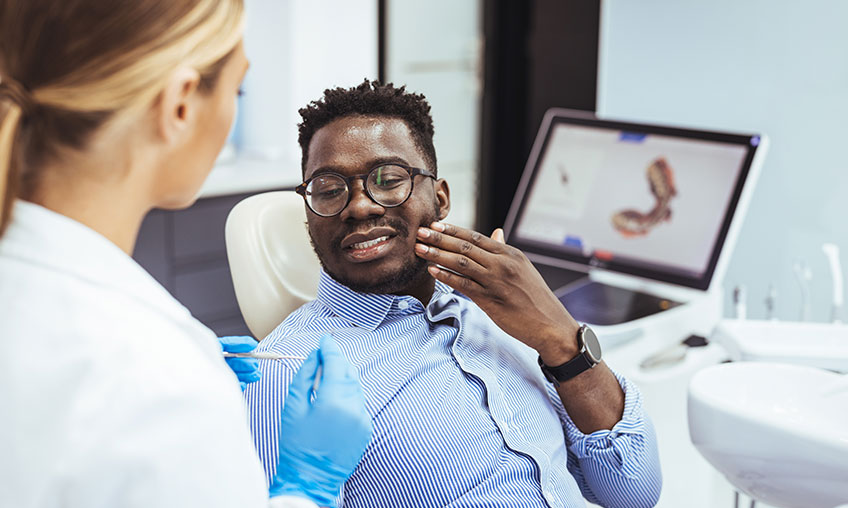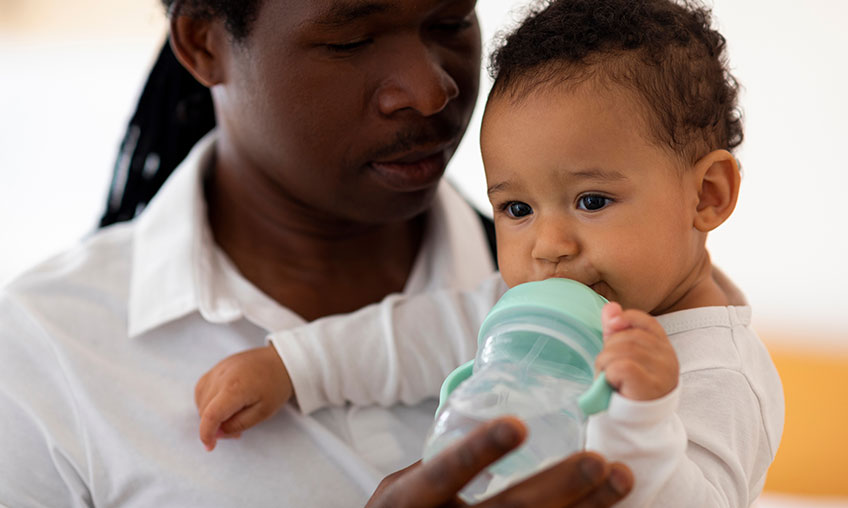Did you know baby teeth are just as important as permanent teeth even though they fall out?
There is a misconception that baby teeth aren’t susceptible to damage — or that damaging them doesn’t matter — but that’s simply not the case. In fact, tooth decay can begin as soon as that first tooth grows in, usually around six months of age. Sometimes called “baby bottle tooth decay,” this early form of dental disease mostly appears in a baby’s front upper teeth. If left untreated, this can cause unnecessary pain and infections and can result in serious consequences for the child, such as problems eating, speaking and learning.
Fortunately, with proper care, tooth decay is entirely preventable. Start by instilling good oral health habits at a young age. Here are five best practices that all parents and caregivers should know in order to care for their children's oral health.
- Schedule your child’s first appointment before they are a year old — Get your child’s first dentist appointment on the books early. The ADA recommends that parents take their children to the dentist within six months of the first tooth’s appearance or, at the latest, by their first birthday. Through early-childhood appointments, dentists can spot any tooth trouble early on, give advice as a child’s teeth grow, clean teeth and apply cavity-preventing dental sealants.
- No teeth? No problem! — Per the CDC, even if a child has no fully grown teeth, parents can still ensure a healthy mouth by wiping their child’s gums 2x day to prevent tooth-decaying bacteria and sugars from hanging around. Use a clean, soft towel or cloth at the beginning of the day after the baby’s first feeding and at night before the baby goes to sleep.
- Once teeth appear, brush immediately — Once a child’s teeth grow in, start brushing. Dentists advise parents to brush their child’s teeth 2x a day using a kid-friendly toothbrush and toothpaste with fluoride until they’re comfortable with their child brushing their own teeth. Once children can brush on their own, parents should supervise and direct their children not to swallow toothpaste.
- Drink fluoridated water — Check your community’s water system to see if your tap water is fluoridated (you can use the CDC’s “My Water’s Fluoride” system to check). Drinking water with at least 0.7 milligrams of fluoride per liter can help fight off future cavities. If the community does not have fluoridated water, consult your dentist or a health care professional about alternative ways to get fluoride.
- Pacifiers and teethers — As children's teeth begin to grow, their mouths may become tender. Parents can soothe the area using a solid rubber teether or even a clean finger to massage the gums. Like teething devices, pacifiers should also remain clean. Avoid adding things onto the pacifier that can cause cavities, such as honey, juice, sugar, or your own saliva! Dental disease is actually contagious, so “cleaning” the pacifier by placing it into a parent’s or other person’s mouth can transfer cavity-causing bacteria to the baby that otherwise wouldn’t exist.
Caring for young kids means juggling so many things but following these tips can help ensure children have a solid foundation of good oral health as they grow.
Dedicated to improving the oral health of all, DentaQuest, part of Sun Life U.S., helps keeps smiles bright for millions of Americans nationwide. Click here to find a dentist.

PREVENTISTRY PULSE
The newsletter designed for anyone who wants to improve oral health for themselves, their families, customers or communities.




